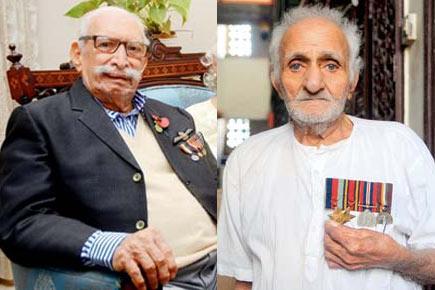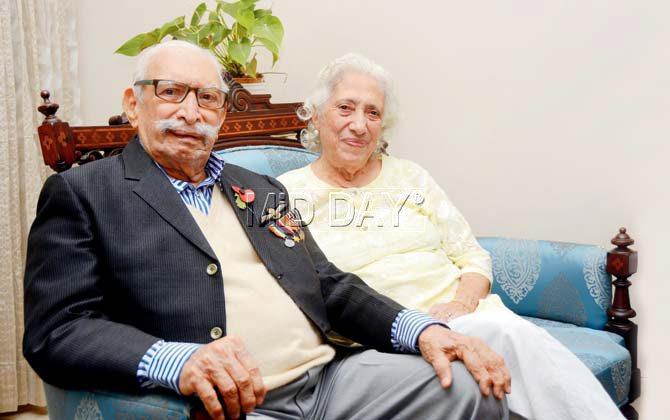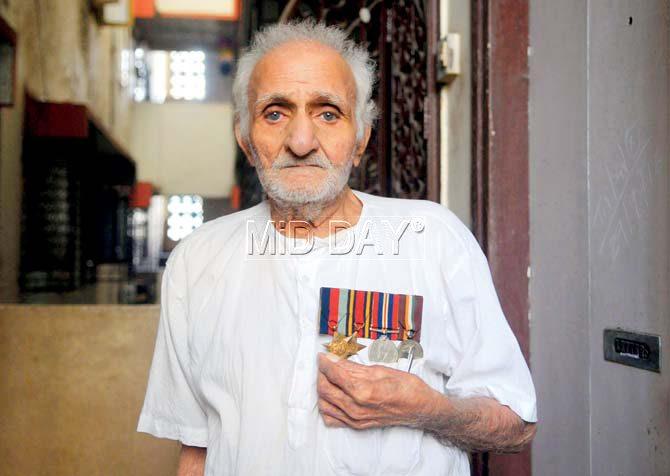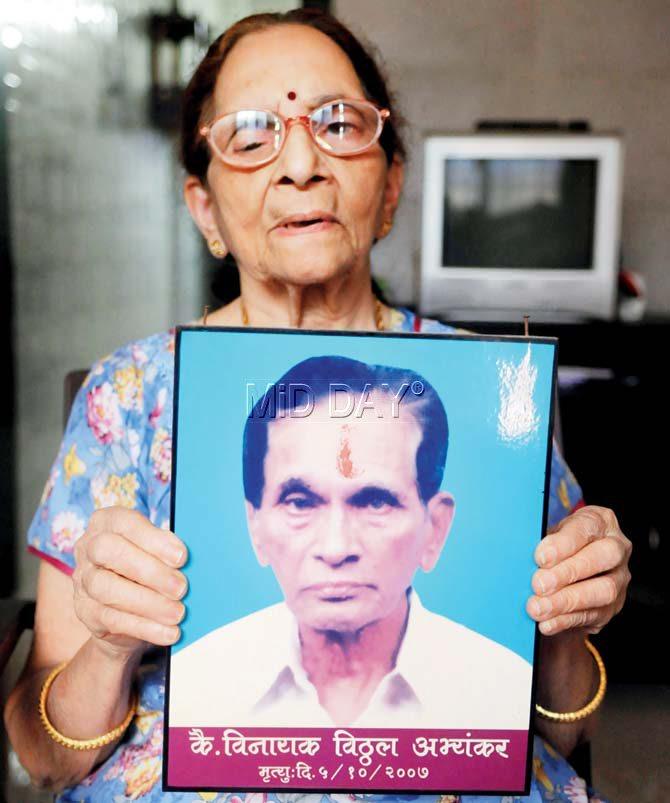As world pays homage to those who died in WWII, soldiers from Mumbai who made it out alive recall their brush with history

A frail war veteran still raring to go back to the battlefield, a soldier fascinated with warplanes and the widow of “a simple man” whose death was mourned by thousands.
ADVERTISEMENT
As the world commemorates Remembrance Sunday, the Sunday closest to November 11 — observed as Remembrance Day to pay homage to the fallen soldiers of World Wars I and II, we take a glimpse of how over 2.5 million Indian soldiers who fought for the Allies — becoming the largest-ever army of volunteers — in WWII saw the war that changed the world.
Today, around 70 WWII veterans are still alive in the country. Eight of these live in Mumbai — and five others across Maharashtra. The Church of St John the Evangelist, better known as the Afghan Church, in Colaba will offer a memorial service today, as has been the custom since 1919, after the end of WWI.
The one who cheated death
Much of Fardoon Mehta’s memory has faded, but he still cackles as he recalls his lucky escape while fighting the Japanese Army in Burma. A bullet apparently pierced his combat helmet from behind, passed over his head and shot out the other side — with nary an injury to him. “It was surreal,” says Mehta at his Grant Road residence, who claims to have been the first Indian to face the Japanese in 1941, directing the firing of artillery from the skies. “Everyone thought he was dead, but he survived, like he always did,” chimes in Vinnie, the 96-year-old war veteran’s wife.

Fardoon Mehta and wife Vinnie. Pic/Sneha Kharabe
As the two exchange a warm look that only long partnerships bring, Vinnie quickly points out that their marriage in 1960 was no less than a battle won. “I was a Pakistani and he an Indian. The courtship was all very filmi,” she laughs.
Vinnie says most Indian soldiers and their families faced turbulent times during WWII. “Indian soldiers were always put on the front lines. Since Fardoon was a Brigadier, he fared better. There were times when even our family didn’t get enough food. On his trips home, he secretly brought food and other supplies.”
She says he also served in Punjab during the Indo-Pak War. “I was in Shimla then. I couldn’t sleep because of the horrors of the war. When he returned, he said he watched planes go down. He said, ‘I love watching planes. You know that.’ I was speechless.”
Mehta retired from the Army in 1969 after serving for 38 years, but he still carries an air of military discipline. As he carefully removes his coat from the closet, pinned with medals of service, his wife smiles, “You should see his room, his cupboard; everything is so organised.”
The couple has been religiously attending Remembrance Sunday memorial services at Afghan Church for the last 40 years.
'I will always be a war fool'
“My coat is torn, but it doesn’t matter. The medals have a shine of their own,” says a beaming Madhukar Dongre (93). “Don’t feel bad for me. I can still fight in the battlefield if they’d let me,” guffaws the ailing Dombivli resident, as he puts out his hand for a firm shake.

Madhukar Dongre. Pic/Datta Kumbhar
Dongre, who fought in Burma and Indonesia during WWII, says he almost didn’t make it into the Army. “I was 16 when I wanted to join the Army. The British officers said they couldn’t take me (the minimum age to enlist is 18). My friends who had made the cut encircled the officers and said they wouldn’t join until I was given the go-ahead. The officers caved in and entered a fake age to allow me to enlist,” he says amidst chuckles.
Dongre recalls a rare comradeship between British and Indian soldiers while fighting the Indonesians in Burma. “We were, kind of, friends.” His eyes crinkle and he endearingly strokes his medals. “It never felt like we were fighting for another country.”
He quit the Army after WWII and tried in vain to enlist again in 1951. “I was heartbroken. I’m a war fool. I still miss the battlefield more than anything,” says Dongre.
His granddaughter, Ketaki, who is paying him and his wife, Maalati, a visit, says he often reminded her, when she acted out as a child, how he used to go to sleep hungry, with nothing to shield him from the cold during WWII.
“Azabba has time and again reminded us of what we are blessed with,” says Ketaki.
As for his Sunday plans, Dongre will pin his medals on his shirt and “march my way into the church”.
'I want to meet him in the next birth too'
An old photograph opens a floodgate of memories for Vasundara Abhyankar (83). The widow of war veteran Vinayak Abhyankar, who served in WWII, fought for Independence and died in 2007 at the age of 86, says the two married when he was 30, “when all the wars were over”.

Vasundara Abhyankar. Pic/Datta Kumbhar
“He didn’t want to fight anymore, and in the 1950s, he joined as a mechanical engineer in the ST bus department in Mumbai,” says the Kandivli resident.
As she finds an old photo while rifling through stacks of documents, she pauses — perhaps overwhelmed by a memory — and adds, “I wish to meet him again in my next birth. I haven’t seen this picture in a long time.”
WWII left a deep impression on Abhyankar, she says. “He missed his Indian and British friends with whom he fought side by side. Only they knew the horrors of the war.”
Amogh (26), Vasundara’s grandson who lives with her along with his mother, says the house was mobbed by thousands of people during Abhyankar’s funeral. “He was a simple, good man.” “Say how he loved to sing,” nudges Vasundara. “He sang for us every day to wakes us up and to put us to sleep,” adds Amogh.
Vasundara says in the days before his death, Abhyankar talked of a different war — the war against corruption. “He used to say this war was worse than the ones he had fought.”
Amogh’s memory of Remembrance Sunday services are hazy. “But, they made my grandfather happy.”
 Subscribe today by clicking the link and stay updated with the latest news!" Click here!
Subscribe today by clicking the link and stay updated with the latest news!" Click here!






